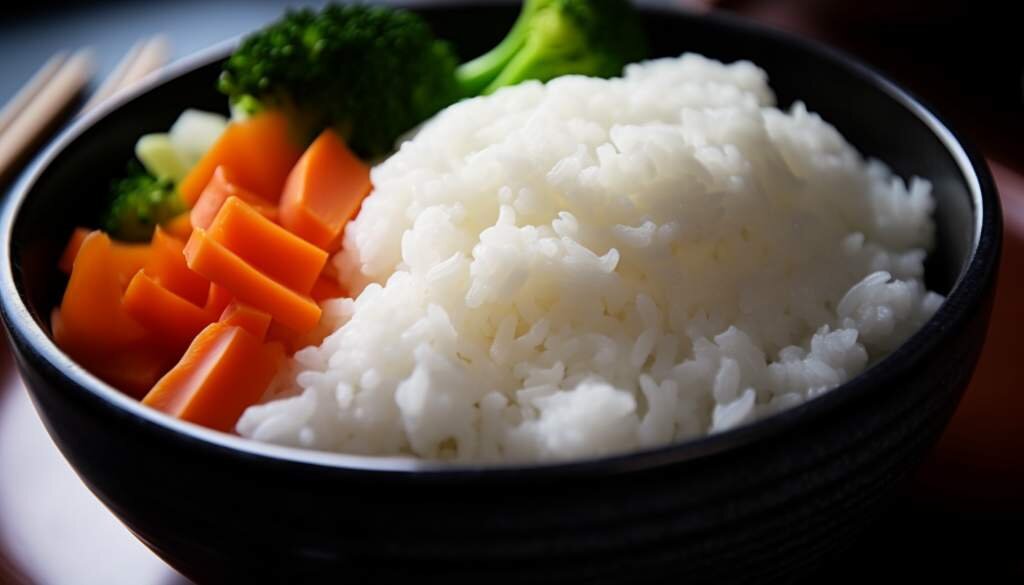
Understanding Diarrhea and Diet
Understanding Diarrhea and Diet is essential for managing and alleviating the symptoms of diarrhea. Diarrhea is a common condition characterized by loose, watery stools occurring three or more times a day. It can be caused by various factors such as viral or bacterial infections, food intolerances, or certain medications. When it comes to managing diarrhea, the impact of diet cannot be overlooked.
In this section, we will explore the relationship between diarrhea and diet, and provide insights into the foods that can be beneficial or detrimental for individuals experiencing diarrhea. By understanding how certain foods can affect the digestive system during diarrhea, you can make informed choices to promote faster recovery and restore normal bowel movements.
Before delving into the specific foods that can help or exacerbate diarrhea, let's briefly touch upon the topics that will be covered in the subsequent H3 sub-sections. These include the controversy surrounding eggs and diarrhea, expert opinions on eating eggs during diarrhea, the best foods for diarrhea, foods to avoid, and recommended beverages for hydration.
What is Diarrhea?
Diarrhea occurs when a person experiences frequent, loose, and watery bowel movements. It is a common condition that can be caused by various factors, including infections, food poisoning, medications, or underlying digestive disorders. The main symptom of diarrhea is the passage of loose and watery stools multiple times a day.
When the lining of the intestines is unable to absorb water, the result is diarrhea. Normally, the digestive system absorbs water from the food we eat, but in cases of diarrhea, this process is disrupted.
There are different types of diarrhea, including acute and chronic diarrhea. Acute diarrhea typically lasts for a short period, usually less than two weeks, and is commonly caused by viral or bacterial infections. Chronic diarrhea, on the other hand, lasts for more than four weeks and may indicate an underlying medical condition.
In addition to frequent bowel movements, diarrhea can be accompanied by symptoms such as abdominal cramps, bloating, nausea, and dehydration. It is crucial to manage diarrhea effectively, especially in vulnerable populations like young children and the elderly.
Diet plays a significant role in managing diarrhea. The foods and beverages we consume can either worsen or alleviate symptoms. A well-balanced and appropriate diet can help regulate bowel movements, reduce inflammation, and restore lost nutrients in the body.
The Impact of Diet on Diarrhea
The Impact of Diet on Diarrhea:
Diet plays a significant role in managing and preventing diarrhea. What you eat or don't eat can have a direct impact on the frequency and severity of diarrhea episodes. A well-balanced diet that includes foods that are easy to digest and gentle on the digestive system can help alleviate symptoms and promote faster recovery.
When dealing with diarrhea, it's crucial to choose foods that are low in fat and fiber. These types of foods are easier for the digestive system to process and can help reduce the frequency of bowel movements. Additionally, they can help prevent further irritation of the intestinal lining, which can worsen diarrhea.
Avoiding certain types of foods is equally important when it comes to managing diarrhea. Foods that are rich in fiber, high in fat, or spicy can all contribute to worsening symptoms. These foods can be harder for the body to break down and may exacerbate digestive issues, leading to more frequent trips to the bathroom.
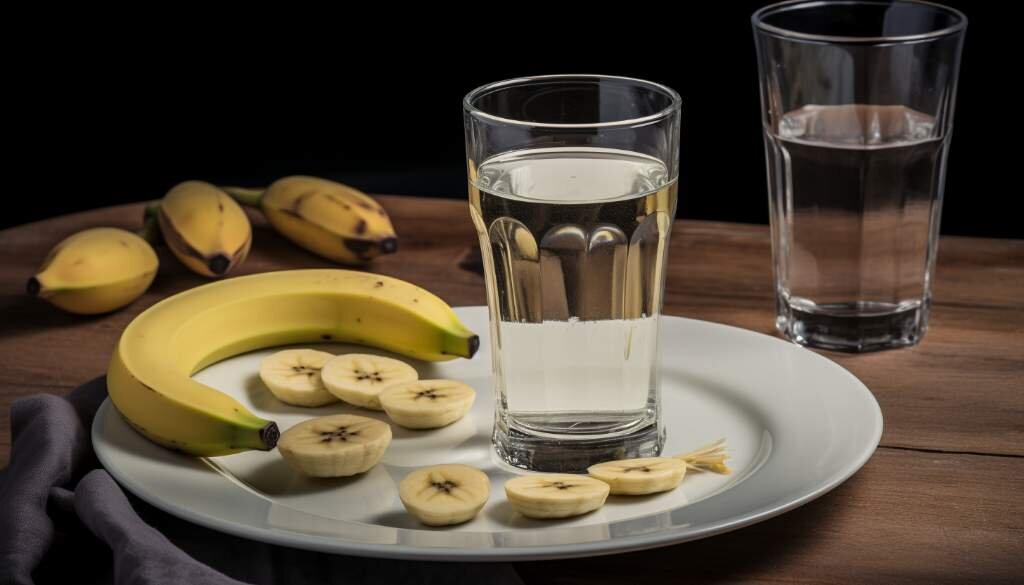
Can You Eat Eggs When You Have Diarrhea?
Diarrhea is a common digestive problem that involves loose, watery stools and frequent bowel movements. When suffering from diarrhea, it is important to be mindful of the foods you consume as certain foods can worsen symptoms and prolong the condition. This raises the question – can you eat eggs when you have diarrhea?
In the next sections, we will explore the controversy surrounding eggs and diarrhea as well as expert opinions on consuming eggs during this digestive upset.
The Controversy Surrounding Eggs and Diarrhea
Eggs have long been a controversial topic when it comes to their impact on diarrhea. While some sources suggest that eggs may worsen diarrhea symptoms, others argue that they can be consumed without any adverse effects. Let's explore the controversy surrounding eggs and diarrhea.
One potential reason for the controversy is that eggs are a high-protein food, and protein can be difficult to digest for some people, especially when they are experiencing diarrhea. This is because the gut is already compromised and may not be able to properly break down and absorb the protein in eggs, leading to digestive discomfort and potentially worsening diarrhea symptoms.
Additionally, eggs are known to be a common allergen, and diarrhea can sometimes be a symptom of an allergic reaction. People who have a known allergy to eggs or have experienced diarrhea after consuming eggs in the past should avoid them to prevent any further complications.
On the other hand, proponents argue that eggs are a highly nutritious food that can provide essential nutrients during bouts of diarrhea. They are a good source of high-quality protein, which is important for maintaining muscle mass and aiding in the repair of damaged tissues. Furthermore, eggs contain important vitamins and minerals such as vitamin B12, which is crucial for nerve function, and selenium, which acts as an antioxidant.
It is worth noting that the type of egg preparation may also play a role in its impact on diarrhea. Consuming raw or undercooked eggs is generally not recommended, as they can carry bacteria such as Salmonella, which can cause food poisoning and worsen diarrhea symptoms. Therefore, it is advisable to thoroughly cook eggs before consumption to reduce the risk of contamination.
Overall, the controversy surrounding eggs and diarrhea stems from the potential difficulty in digesting protein during episodes of diarrhea and individual variations in tolerance and allergies. If you are unsure how eggs will affect your diarrhea symptoms, it may be best to consult your healthcare provider or a registered dietitian for personalized advice.
Expert Opinions on Eating Eggs with Diarrhea
Expert opinions on eating eggs with diarrhea vary, and there is some controversy surrounding this topic. While eggs are a nutritious food, they may not be suitable for everyone with diarrhea.
Some experts suggest avoiding eggs when experiencing diarrhea. The reason behind this recommendation is that eggs are high in fat and can be difficult to digest, which may aggravate gastrointestinal symptoms and worsen diarrhea.
However, other experts believe that eggs can be included in the diet during diarrhea, as long as they are prepared in a gentle manner. Hard-boiled or poached eggs are often recommended, as they are cooked without added fats or oils. This makes them easier to digest and less likely to cause further digestive distress.
It is important to note that individual tolerances can vary. Some people with diarrhea may find that they can tolerate eggs well, while others might experience increased symptoms after consuming eggs.
If you are unsure about whether to eat eggs during diarrhea, it is best to consult with your healthcare provider or a registered dietitian. They can provide personalized recommendations based on your specific health condition and dietary needs.

Best Foods for Diarrhea
When dealing with diarrhea, it's important to pay attention to what you eat. Choosing the right foods can help ease your symptoms and support your digestive system. In this section, we will explore the best foods for diarrhea, which can help you recover faster.
From bland and easily digestible options to foods that can help reduce inflammation in your gut, the following foods are known for their soothing effects on the digestive system. Let's take a look at some of them:
- Bananas
- White Rice
- Broth
- Mashed Potatoes
- Yogurt
- Barley
- Canned Peaches
These foods provide important nutrients, such as potassium from bananas and probiotics from yogurt, which can help restore balance in your gut. We'll delve deeper into the benefits of each of these foods in the following sub-sections.
1. Bananas
When it comes to finding the best foods for diarrhea, bananas are often at the top of the list. They are easy to digest and provide the body with essential nutrients that can help alleviate symptoms and promote recovery.
1. Bananas are a rich source of potassium, which is an important electrolyte that can be lost through diarrhea. Consuming bananas can help replenish these electrolytes and maintain the balance in your body.
2. Bananas are also high in fiber, which can help bulk up your stool and regulate bowel movements. This can be particularly beneficial if you are experiencing loose stools or diarrhea.
3. In addition, bananas are gentle on the stomach and are unlikely to cause any further irritation. This makes them a safe and soothing food choice for those with diarrhea.
4. The soft texture of bananas makes them easy to chew and swallow, which can be helpful if you have a sensitive or irritated digestive system.
5. Finally, bananas are readily available and can be easily carried with you for a quick and convenient snack. This makes them a practical choice for managing diarrhea on the go.
2. White Rice
In cases of diarrhea, choosing the right foods can help ease symptoms and promote healing. One such food is white rice. White rice is a staple food in many cultures and is often recommended as part of the BRAT diet for digestive issues such as diarrhea.
White rice is easy to digest and is gentle on the stomach. It can help to bind the stool and reduce the frequency of bowel movements, providing relief from diarrhea.
Here are some reasons why white rice is a good choice when you have diarrhea:
- Low fiber content: White rice is low in fiber, which makes it easy to digest. Foods that are high in fiber can aggravate diarrhea symptoms, so opting for low-fiber foods like white rice can be beneficial.
- Starchy consistency: The starchy consistency of white rice can help add bulk to loose stools, making them more formed and reducing the likelihood of watery diarrhea.
- Soothing properties: White rice has a bland taste and a soothing effect on the digestive system. It can help calm inflammation and irritation in the intestines, providing relief from diarrhea discomfort.
When consuming white rice for diarrhea relief, it is important to prepare it in a plain and simple manner. Avoid adding any spices, sauces, or other ingredients that may increase the risk of aggravating your symptoms.
Keep in mind that while white rice can be beneficial for diarrhea, it should not be the sole source of nutrition during this time. It is important to consume a balanced diet that includes other easily digestible foods.
Overall, white rice is a safe and gentle option for individuals experiencing diarrhea. It can help improve symptoms by providing a bland and binding effect on the stool. However, if your diarrhea persists for more than a few days or is accompanied by severe symptoms, it is important to consult a medical professional for proper evaluation and treatment.
3. Broth
Broth is a popular choice for people suffering from diarrhea due to its soothing and hydrating properties. It is a clear, thin liquid that can be made from simmering meat, bones, vegetables, or a combination of these ingredients.
Here are some reasons why broth is considered one of the best foods for diarrhea:
- Hydration: Diarrhea leads to excessive fluid loss, which can lead to dehydration. Broth helps to replenish lost fluids and maintain electrolyte balance, preventing dehydration.
- Gentle on the stomach: When you have diarrhea, your digestive system becomes sensitive and inflamed. Broth is easily digestible and gentle on the stomach, providing necessary nutrients without aggravating the digestive system.
- Comforting and nourishing: Diarrhea can leave you feeling weak and fatigued. Broth is not only comforting but also provides essential nutrients like protein, vitamins, and minerals, helping to keep you nourished during this time.
It is essential to choose the right type of broth when dealing with diarrhea. Some tips to keep in mind:
- Opt for clear broths rather than creamy or thick ones, as these can be harder to digest.
- Avoid broths that are high in sodium, as excessive salt can worsen diarrhea symptoms.
- If possible, make your own broth at home using fresh ingredients to have better control over the ingredients and avoid added preservatives or artificial flavorings.
Overall, including broth in your diet when you have diarrhea can help soothe your digestive system, provide necessary hydration, and deliver essential nutrients to support your recovery.
4. Mashed Potatoes
Mashed potatoes are a popular comfort food that can be beneficial for individuals with diarrhea. They are easy to digest and provide essential nutrients to help restore lost energy and promote recovery.
Mashed potatoes are made from cooked and mashed potatoes, typically seasoned with salt, pepper, and butter for added flavor. They have a soft and smooth texture, making them easier to consume and digest compared to other solid foods.
Here are some reasons why mashed potatoes are a good choice for diarrhea:
- Bland and Easy to Digest: Mashed potatoes have a bland flavor, which can be soothing to the digestive system. When you have diarrhea, your stomach and intestine are already irritated, so consuming bland foods can help calm the digestive tract. The smooth texture of mashed potatoes also makes them easier to digest.
- High in Carbohydrates: Mashed potatoes are a great source of carbohydrates. Carbohydrates are the body's primary source of energy, and when you have diarrhea, you may experience a loss of energy due to fluid loss. Consuming mashed potatoes can help replenish energy levels and prevent fatigue.
- Rich in Potassium: Potassium is an essential mineral that plays a vital role in maintaining proper body function. Diarrhea can cause electrolyte imbalances, including a loss of potassium. Mashed potatoes contain potassium, which helps restore these electrolyte levels and maintain proper muscle function.
- Provides Soluble Fiber: While it is generally recommended to avoid high-fiber foods during episodes of diarrhea, mashed potatoes contain a small amount of soluble fiber. Soluble fiber can help add bulk to the stool and regulate bowel movements. However, it is important not to overconsume fiber, as excessive intake can aggravate diarrhea.
When preparing mashed potatoes for individuals with diarrhea, it is important to keep the recipe simple and avoid adding ingredients such as garlic, onion, or milk, which can potentially worsen diarrhea symptoms. Instead, opt for plain mashed potatoes without any heavy seasonings.
In conclusion, mashed potatoes are a good choice for individuals with diarrhea. They are easy to digest, provide essential nutrients, and can help soothe the digestive system. However, it is important to listen to your body and consult a healthcare professional if you experience persistent or severe diarrhea.
5. Yogurt
Yogurt is one of the best foods to eat when you have diarrhea. It is not only easy to digest but also contains beneficial bacteria that can help restore the balance of your gut flora.
Here are a few reasons why yogurt is beneficial for diarrhea:
- Probiotics: Yogurt contains live and active cultures of bacteria, such as Lactobacillus acidophilus and Bifidobacterium bifidum. These probiotics can help to replenish the good bacteria in your gut, which may have been depleted due to diarrhea.
- Gentle on the stomach: The smooth and creamy texture of yogurt makes it easy to digest, even when you have an upset stomach. It is also soothing to the digestive tract, providing relief from discomfort.
- Rich in nutrients: Yogurt is a good source of protein, calcium, and other essential nutrients. When you have diarrhea, your body loses important nutrients, and yogurt can help replenish them.
When choosing yogurt for diarrhea, opt for plain, unsweetened yogurt without any added flavors or sweeteners. Avoid yogurt with added fruit or artificial ingredients, as these can potentially aggravate your symptoms.
It's important to note that not all yogurts are created equal, and some may have higher levels of sugar or artificial additives. Be sure to read the labels and choose a yogurt that is low in sugar and contains live and active cultures.
Remember to introduce yogurt slowly into your diet if you have digestive issues, as sudden changes in your diet can sometimes worsen symptoms. Start with small amounts and gradually increase as your symptoms improve.
Overall, yogurt can be a great addition to your diet when you have diarrhea. It provides important nutrients, is gentle on the stomach, and contains beneficial bacteria that can support gut health.
6. Barley
When it comes to managing diarrhea, it is important to include foods that are easy to digest and gentle on the stomach. Barley is one such food that can be beneficial in providing relief from diarrhea symptoms. Here's why:
- High in Soluble Fiber: Barley contains a good amount of soluble fiber, which can help regulate bowel movements. Soluble fiber absorbs water in the intestines, adding bulk to the stool and promoting normal bowel function.
- Source of Energy: Diarrhea can cause dehydration and loss of nutrients. Barley is a complex carbohydrate that provides a steady release of energy without causing additional stress on the digestive system. It can help replenish energy levels and support overall well-being.
- Calming Effect: Barley has a soothing effect on the stomach due to its mucilaginous properties. It forms a protective coating on the lining of the intestines, reducing inflammation and irritation. This can help alleviate symptoms such as abdominal pain and cramping.
- Nutrient-Rich: Barley is packed with essential nutrients such as vitamins, minerals, and antioxidants. These nutrients are important for maintaining a healthy digestive system and supporting the body's immune function.
When including barley in your diet during diarrhea, it is best to consume it in a simple and easily digestible form. Here are a few ways to incorporate barley:
- Make a warm barley soup or stew by cooking barley in vegetable or chicken broth.
- Add cooked barley to a bowl of yogurt for a nutritious and soothing snack.
- Cook barley with water or milk and top it with a sprinkle of cinnamon and honey for a comforting breakfast.
It is important to note that individual tolerances may vary, so it's essential to listen to your body and make adjustments according to your comfort level. If you notice any adverse reactions or if your symptoms worsen, it is advisable to consult a healthcare professional.
7. Canned Peaches
Canned peaches are an excellent choice when it comes to managing diarrhea. They are not only tasty but also packed with essential nutrients that aid in recovery and provide relief from gastrointestinal distress.
One of the key reasons why canned peaches are beneficial for diarrhea is their high water content. Diarrhea can lead to dehydration, and consuming foods with high water content helps replenish lost fluids. Canned peaches, being mostly water, can assist in maintaining hydration levels.
In addition to water, canned peaches are a great source of dietary fiber. Fiber is known to promote healthy digestion and bulk up stool, which can help regulate bowel movements. However, it's important to note that excessive fiber intake can worsen diarrhea. Therefore, it's recommended to start with small amounts of canned peaches and gradually increase the quantity as tolerated.
Canned peaches also contain natural sugars that can provide a quick energy boost to individuals experiencing diarrhea-related fatigue. Moreover, the sugars in peaches are easily digestible, making it easier for the body to absorb nutrients.
Another advantage of canned peaches is their vitamin and mineral content. Peaches are rich in vitamins A and C, as well as potassium. These nutrients are essential for maintaining a healthy immune system and aiding in the recovery process.
When choosing canned peaches, it's important to opt for those packed in their own juice or light syrup rather than heavy syrup. This helps minimize the intake of added sugars, which can exacerbate diarrhea symptoms.
Overall, consuming canned peaches can be a safe and beneficial choice for individuals with diarrhea. As with any food, it's advisable to listen to your body and ensure that the peaches are well tolerated. If symptoms worsen or persist, it's essential to consult a healthcare professional.
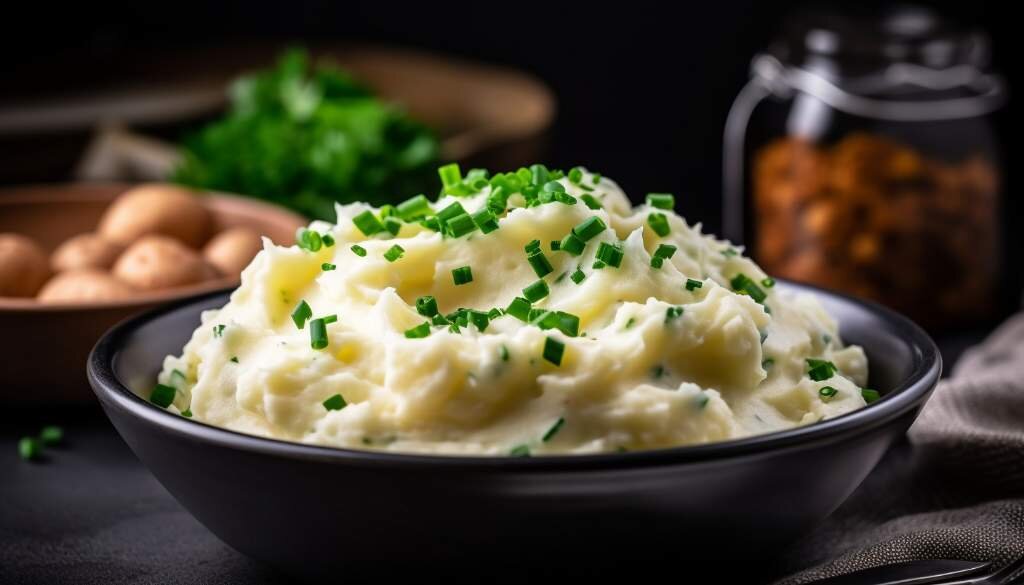
Foods to Avoid for Diarrhea
When dealing with diarrhea, it is not only important to know what foods to eat but also what foods to avoid. Certain foods can exacerbate diarrhea symptoms and worsen the condition. In this section, we will explore the foods that should be avoided when experiencing diarrhea and understand their impact on the digestive system.
In the following sub-sections, we will discuss specific foods that can be detrimental for individuals with diarrhea:
- Nuts and Seeds
- Salad
- Coffee
- Legumes
- Sugar Substitutes
- Cruciferous Vegetables
By understanding the foods to avoid, you can make informed choices to alleviate your symptoms and promote faster recovery.
1. Nuts and Seeds
Nuts and seeds are generally not recommended when you have diarrhea. These foods can be high in fiber, which can worsen diarrhea by adding bulk to the stool. They also contain natural oils and fats, which can be difficult for the digestive system to process when it is already irritated.
Furthermore, nuts and seeds can be hard to digest and may cause excessive gas and bloating. This can exacerbate the symptoms of diarrhea and make you feel even more uncomfortable.
If you are experiencing diarrhea, it is best to avoid consuming nuts and seeds until your symptoms have resolved. Instead, focus on easy-to-digest foods that are gentle on your stomach.
2. Salad
If you have diarrhea, it is important to avoid certain foods that can worsen your symptoms. One food that you should steer clear of is salad.
Salads are typically made with raw vegetables, which can be difficult to digest when you have diarrhea. Raw vegetables are high in fiber, which adds bulk to your stool. This can lead to more frequent bowel movements and worsen your diarrhea symptoms.
Additionally, many salads are dressed with vinegar or citrus-based dressings, which can irritate the digestive system and cause further discomfort.
Instead of salad, opt for cooked vegetables such as steamed carrots or zucchini. These are easier to digest and less likely to aggravate your diarrhea.
3. Coffee
Coffee is a beverage that should be avoided when you have diarrhea. While it may be a staple in many people's daily routine, the caffeine and other compounds found in coffee can exacerbate diarrhea symptoms and irritate the digestive system.
One of the main reasons coffee is not recommended for those with diarrhea is its high caffeine content. Caffeine is a stimulant that can increase bowel movements and cause loose stools. It can also act as a diuretic, leading to dehydration which can further worsen diarrhea symptoms.
Additionally, coffee contains compounds called tannins that can have an astringent effect on the intestines. This can lead to increased water absorption from the stool, resulting in firmer stools. However, in the case of diarrhea, this astringent effect can interfere with the natural rehydration process, prolonging the duration of diarrhea.
Furthermore, the acidity of coffee can irritate the lining of the stomach and intestines, causing discomfort and exacerbating diarrhea symptoms.
It is important to note that these effects can vary from person to person. While some individuals may be more sensitive to coffee and experience worsened diarrhea symptoms after consuming it, others may not experience any noticeable effects.
In summary, it is generally best to avoid consuming coffee when you have diarrhea. Opt for hydrating beverages such as water, herbal teas, or clear broths instead.
4. Legumes
When it comes to eating legumes, it's important to be cautious if you have diarrhea. Legumes, which include beans, lentils, and peas, can be difficult for some individuals to digest and may worsen diarrhea symptoms. Here's what you need to know about legumes and diarrhea:
- High Fiber Content: Legumes are known for their high fiber content, which can be beneficial for overall gut health. However, during episodes of diarrhea, high-fiber foods can aggravate the condition by adding bulk to the stool and increasing bowel movements. Therefore, it is advisable to avoid legumes when you have diarrhea.
- Gas and Bloating: Legumes are also notorious for causing gas and bloating in some individuals due to their high content of complex carbohydrates. These carbohydrates can ferment in the gut and lead to excessive gas production, which can exacerbate diarrhea symptoms and discomfort.
- Digestive Enzymes: Legumes contain certain substances called anti-nutrients, such as phytates and lectins, which can interfere with the absorption of nutrients. Moreover, these substances can irritate the digestive tract and worsen diarrhea. Cooking legumes thoroughly can help neutralize some of these anti-nutrients, but it is still advisable to avoid them during episodes of diarrhea.
If you are a fan of legumes and want to include them in your diet, it's best to wait until your diarrhea has resolved and your digestive system is back to normal. Gradually reintroducing legumes after your symptoms have subsided can help you gauge your body's tolerance and prevent any potential digestive issues.
5. Sugar Substitutes
Sugar substitutes should be avoided when you have diarrhea as they can worsen your symptoms and prolong your recovery. While they may seem like a convenient alternative to sugar, they can have a laxative effect and lead to even more frequent bowel movements.
The following are some common sugar substitutes to avoid:
- 1. Artificial sweeteners: Artificial sweeteners such as aspartame, sucralose, and saccharin should be avoided when you have diarrhea. These sweeteners can cause gastrointestinal discomfort and increase the risk of diarrhea.
- 2. Stevia: Stevia is a natural sweetener derived from the stevia plant. While it is generally considered safe, some people may experience digestive issues after consuming stevia, including diarrhea.
- 3. Sorbitol: Sorbitol is a sugar alcohol often used as a sweetener in sugar-free gum and candies. It can have a laxative effect and may worsen diarrhea symptoms.
When managing diarrhea, it's best to stick to natural sources of sweetness, such as ripe fruits or honey in moderation. This will help avoid any potential exacerbation of symptoms.
6. Cruciferous Vegetables
When it comes to managing diarrhea, it is important to be aware of the foods that can worsen the condition. In this section, we will discuss cruciferous vegetables, which should be avoided when you have diarrhea.
Cruciferous vegetables belong to the Brassicaceae family and include vegetables such as broccoli, cauliflower, cabbage, Brussels sprouts, and kale. While these vegetables are generally considered nutritious and beneficial for overall health, they can be problematic for individuals with diarrhea.
The main reason why cruciferous vegetables should be avoided during diarrhea is their high fiber content. Fiber is known to add bulk to the stool, and in the case of diarrhea, this can exacerbate the symptoms and lead to further discomfort.
Cruciferous vegetables also contain certain compounds called sulfur-containing glucosinolates. While these compounds are usually considered beneficial for their potential anti-cancer properties, they can also contribute to gas and bloating, which can worsen diarrhea symptoms.
Moreover, cruciferous vegetables are known to contain indigestible sugars called raffinose. Raffinose can ferment in the intestines, leading to increased gas production and potentially aggravating diarrhea.
It is important to note that the effects of cruciferous vegetables can vary from person to person. While some individuals may tolerate them well, others may find that these vegetables worsen their diarrhea symptoms. If you are experiencing diarrhea, it may be best to temporarily avoid cruciferous vegetables and opt for other easily digestible foods.
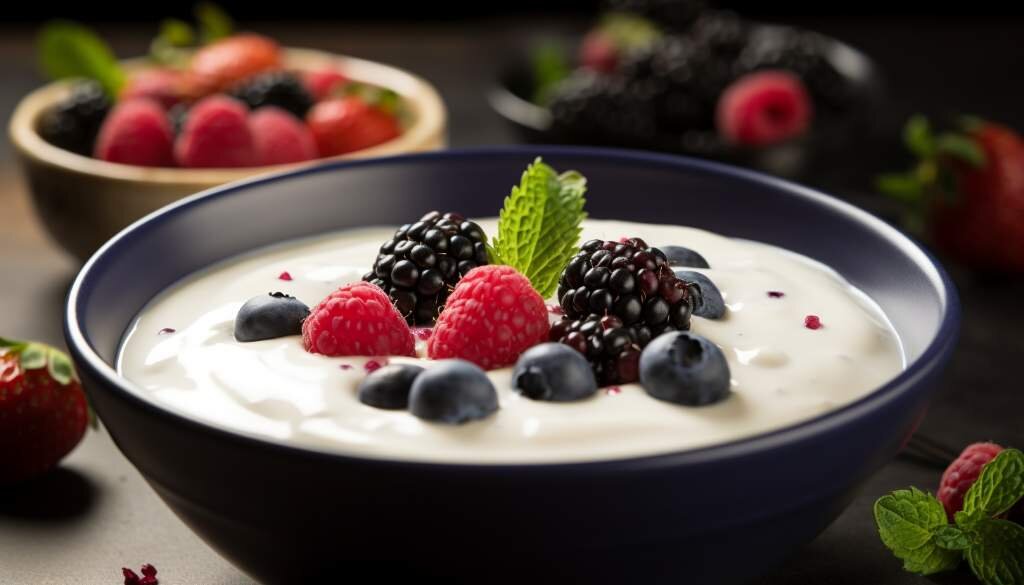
What to Drink When You Have Diarrhea
When experiencing diarrhea, it is essential to pay attention to what you drink in order to stay hydrated and aid in recovery. Consuming the right beverages can help replace lost fluids and electrolytes, as well as soothe the digestive system. In this section, we will explore the best drinks to have when you have diarrhea.
Throughout this section, we will cover the importance of hydration and recommend beverages that can be beneficial. By staying adequately hydrated, your body can recover more quickly and efficiently. Let's dive into the details by exploring the following sub-sections:
- Hydration is Key
- Recommended Beverages
Hydration is Key
Hydration is crucial when you have diarrhea as it helps replenish the fluids lost through frequent bowel movements. Diarrhea can cause dehydration, which can lead to various health complications.
When you have diarrhea, your body loses water along with electrolytes like sodium and potassium. It's important to replace these fluids to prevent dehydration.
Here are some tips on what to drink when you have diarrhea:
- Water: Drinking plain water is essential to stay hydrated. Sip on small amounts frequently throughout the day to replace the lost fluids.
- Oral rehydration solutions (ORS): These solutions contain a precise balance of electrolytes and sugars to help replenish fluids and promote electrolyte absorption. ORS solutions are especially important for young children and older adults as they are more susceptible to dehydration.
- Clear broths and soups: Broths made from chicken, beef, or vegetable stock can provide both hydration and some nutrients. Make sure they are low in fat and spices.
- Herbal teas: Chamomile or peppermint tea can help soothe the digestive system and provide hydration. Avoid adding sugar or milk to the tea.
While hydrating, it's important to avoid certain beverages that can worsen diarrhea:
- Alcohol: Alcohol can contribute to dehydration and irritate the digestive system, worsening diarrhea. It's best to avoid alcohol until your symptoms improve.
- Caffeinated drinks: Coffee and other caffeinated beverages are diuretics and can increase fluid loss. Choose decaffeinated options if you crave a warm drink.
- Fruit juices: Certain fruit juices, especially those high in fructose, can worsen diarrhea. Opt for clear juices like apple juice, but dilute them with water if necessary.
Remember, hydrating properly is essential, but if your diarrhea persists for more than a couple of days or is accompanied by severe symptoms such as high fever, bloody stools, or severe abdominal pain, it's important to seek medical attention as it could indicate an underlying condition.
Recommended Beverages
When you have diarrhea, it's important to stay hydrated to replenish the fluids that you are losing. Drinking the right beverages can help soothe your stomach and restore electrolyte balance. Here are some recommended beverages that can provide relief:
- 1. Water: Drinking plain water is essential to prevent dehydration. Sip small amounts of water throughout the day to stay hydrated.
- 2. Oral rehydration solution (ORS): ORS is a specially formulated solution that contains a balanced amount of electrolytes and sugars. It helps replace the electrolytes lost during diarrhea and prevents dehydration. You can buy ORS packets from pharmacies or make your own by mixing a teaspoon of salt and four teaspoons of sugar in a liter of clean water.
- 3. Coconut water: Coconut water is a natural source of electrolytes like potassium and magnesium. It is highly hydrating and can help replenish the essential minerals lost during diarrhea.
- 4. Herbal tea: Certain herbal teas like chamomile tea, peppermint tea, and ginger tea can have calming effects on the stomach. They can help alleviate symptoms like stomach cramps and nausea that often accompany diarrhea.
- 5. Sports drinks: Sports drinks contain electrolytes like sodium and potassium, which can help replace the minerals lost during diarrhea. However, be mindful of the sugar content in some sports drinks, as excessive sugar intake can worsen diarrhea in some cases.
It's important to avoid beverages that can further irritate your digestive system. The following should be avoided:
- 1. Caffeinated drinks: Coffee, black tea, and energy drinks are diuretic and can worsen dehydration by increasing urine output.
- 2. Alcohol: Alcohol is dehydrating and can further irritate your stomach, worsening diarrhea symptoms.
- 3. Carbonated drinks: The carbonation in sodas and sparkling water can contribute to bloating and gas, worsening diarrhea symptoms.
- 4. Sugary drinks: High-sugar beverages like fruit juices, sodas, and sweetened teas can exacerbate diarrhea and increase water loss due to osmotic effect.
Remember, while it's essential to drink the recommended beverages mentioned above, it's equally important to consult a healthcare professional if you have severe diarrhea, persistent symptoms, or if your condition worsens.
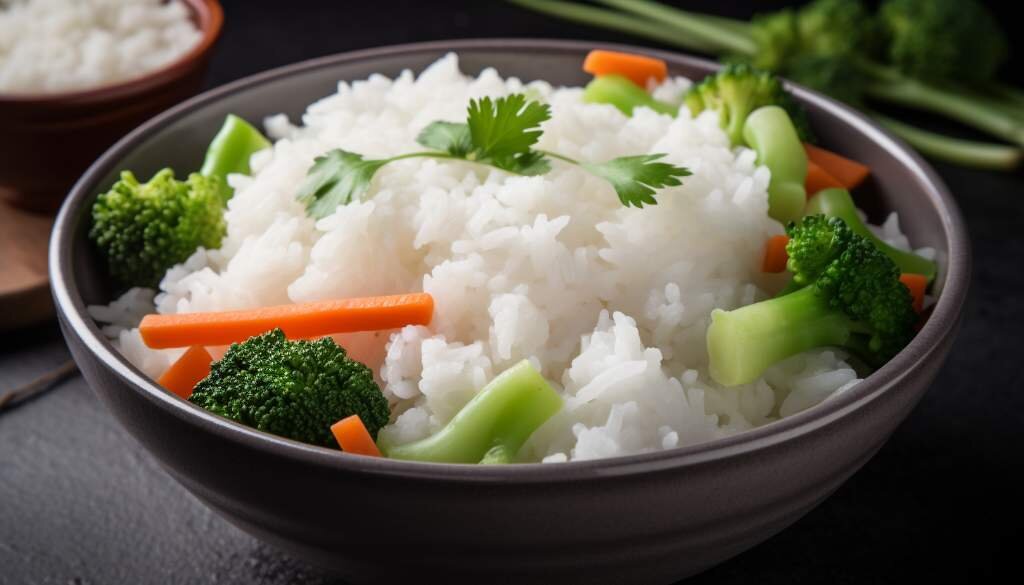
When to Seek Medical Attention for Diarrhea
If you are experiencing diarrhea, it is important to know when it is necessary to seek medical attention. While most cases of diarrhea can be managed at home, there are certain situations where medical intervention may be required.
If you experience any of the following symptoms, it is advisable to consult a healthcare professional:
- Blood in Stool: If you notice blood or mucus in your stool, it could indicate a more serious underlying condition and should be evaluated by a doctor.
- Persistent Diarrhea: If your diarrhea lasts longer than a few days or if it keeps returning intermittently, it is important to get medical advice. Chronic diarrhea can be a symptom of an underlying digestive disorder that requires treatment.
- Severe Abdominal Pain: If you experience intense abdominal pain along with your diarrhea, it could be a sign of a more serious condition such as appendicitis or inflammatory bowel disease. Seek immediate medical attention if you have severe abdominal pain.
- High Fever: Diarrhea accompanied by a high fever could indicate an infection that requires medical treatment. If you have a fever above 101°F (38.3°C), it is recommended to consult a healthcare professional.
- Dehydration: Diarrhea can cause dehydration, especially if it is severe or prolonged. If you are experiencing signs of dehydration such as excessive thirst, dry mouth, dark urine, fatigue, dizziness, or lightheadedness, it is crucial to seek medical attention.
Always trust your instincts when it comes to your health. If you feel that your symptoms are severe or if you have any concerns, it is best to consult a healthcare professional for proper evaluation and guidance.








